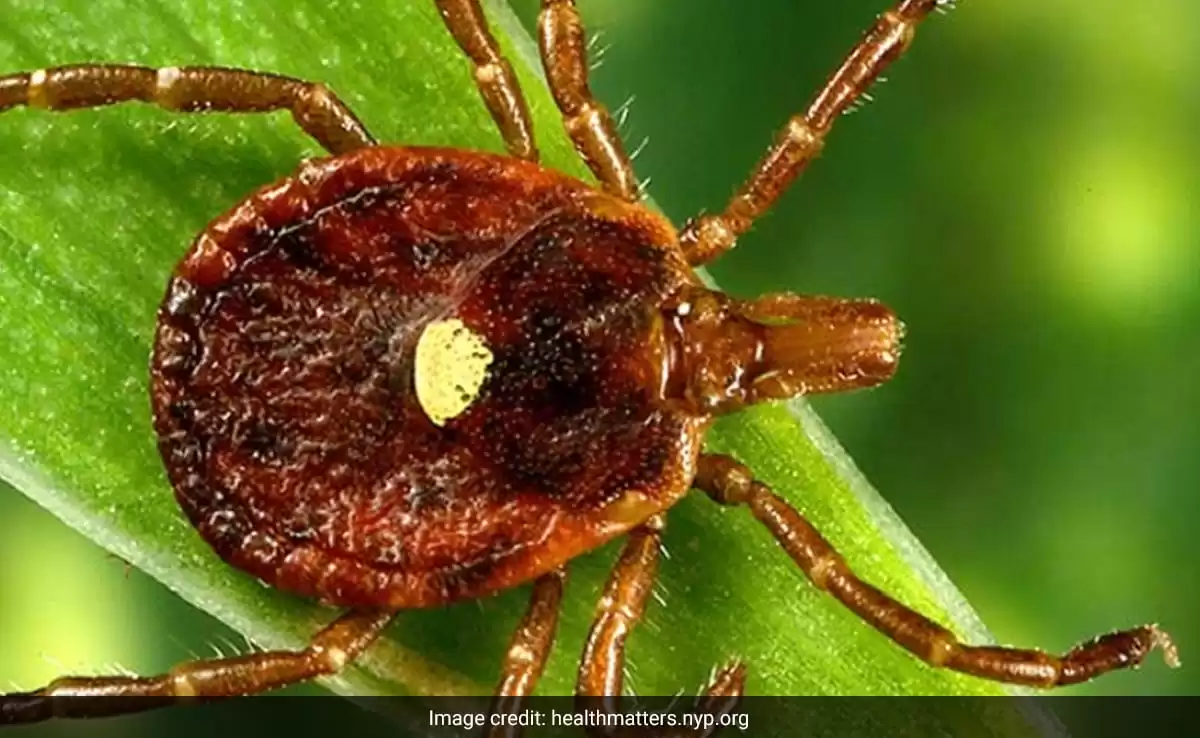Alpha-Gal Syndrome: Increase in Meat Allergy Cases Linked to Tick Bites Sparks US Concern
"Tick bites causing rise in rare meat allergy affecting up to 450,000 Americans, CDC reports reveal."
The bite of a lone star tick can lead to a condition known as alpha-gal syndrome (AGS), which is an allergic reaction to a sugar found in dairy and red meat. A recent report from the national public health agency of the United States, the Centers for Disease Control and Prevention (CDC), reveals that the rate of Americans developing this rare meat allergy from tick bites is on the rise. In fact, the data suggests that as many as 450,000 people may have already been impacted by AGS.
The report highlights that between 2010 and 2022, over 110,000 suspected cases of AGS were identified. However, due to the specific diagnostic requirements and the fact that not all individuals with AGS get tested, it is estimated that the true number of affected individuals in the United States could be as high as 450,000. This staggering figure emphasizes the need for increased awareness and understanding of this condition.
The studies published in the Morbidity and Mortality Weekly Report shed light on the fact that many healthcare providers in the United States are unfamiliar with AGS. This emerging allergic condition, also known as the red-meat allergy or the tick bite meat allergy, can be potentially life-threatening. The lack of knowledge about diagnosis and management among healthcare professionals is concerning.
One study conducted a survey among 1,500 family/general practitioners, internists, pediatricians, nurse practitioners (NPs), and physician assistants (PAs) across the country. The results revealed that nearly half of the respondents had never heard of AGS, while approximately one-third expressed low confidence in their ability to diagnose or manage patients with AGS. Only five percent reported feeling very confident in their abilities.
So, what exactly is alpha-gal syndrome (AGS)? According to the CDC, it is a serious and potentially life-threatening allergic condition. AGS is also referred to as alpha-gal allergy, red meat allergy, or tick-bite meat allergy. It is important to note that AGS is not caused by an infection. Symptoms of AGS typically occur after consuming red meat or being exposed to other products containing alpha-gal.
The CDC report indicates that between 2010 and 2022, there were over 110,000 suspected cases of AGS. However, since cases of AGS are not nationally notifiable to the CDC, the exact number of cases in the United States remains unknown. Further research and data are necessary to gain a better understanding of the prevalence and impact of this condition.
It is crucial that both healthcare professionals and the general public become more informed about AGS. With the rising number of cases and the potential severity of the allergic reactions, early diagnosis and proper management are essential. Increased awareness can help prevent unnecessary complications and ensure that individuals with AGS receive the necessary care and support.
In conclusion, the bite of a lone star tick can lead to alpha-gal syndrome (AGS), an allergic reaction to a sugar found in dairy and red meat. The rate of Americans developing this rare meat allergy from tick bites is on the rise, with an estimated 450,000 people potentially affected. However, many healthcare providers are still unfamiliar with AGS, highlighting the need for increased awareness and understanding. AGS is a serious and potentially life-threatening allergic condition that requires proper diagnosis and management. Further research is necessary to determine the true prevalence of AGS in the United States.











Comments on Alpha-Gal Syndrome: Increase in Meat Allergy Cases Linked to Tick Bites Sparks US Concern